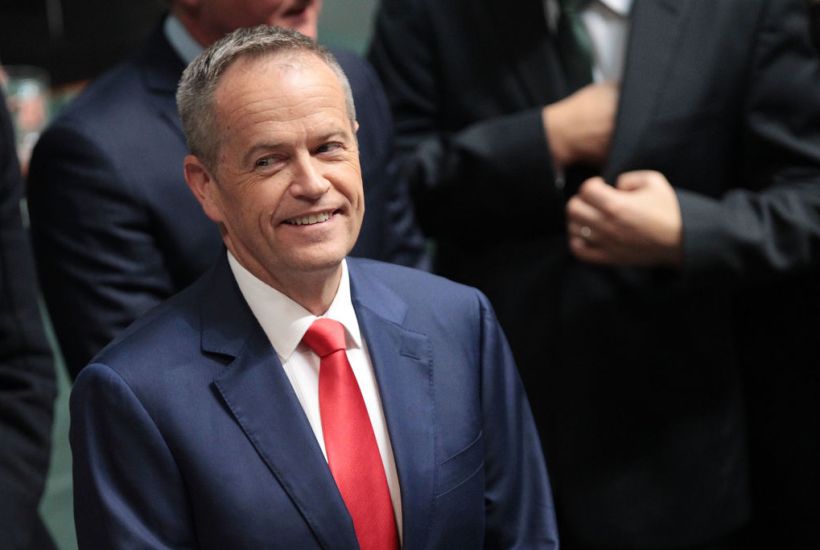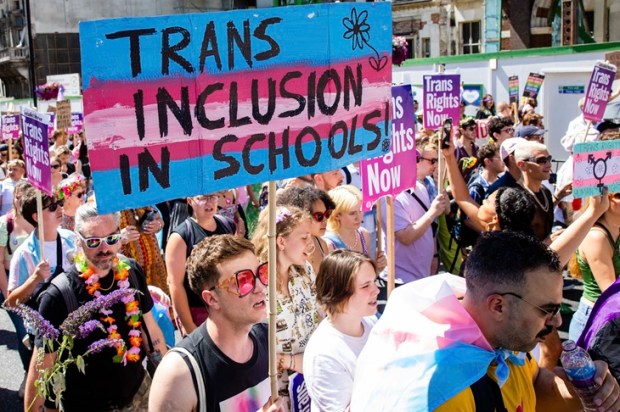David Marr appropriately titled his Quarterly Essay on Bill Shorten, ‘Faction Man’, for the Labor leader was shaped by the Right – the Australian Workers Union kind of Right
Now former Shorten staffer turned academic, Nick Dyrenfurth, has written a new book on an old history, that of the AWU itself and its entrenched power and influence. A Powerful Influence on Australian Affairs should be read as a warning of the impact trade unions will have under a Bill Shorten Labor government.
As Dyrenfurth’s account shows, the AWU unionised pastoral and mine workers across rural Australia, sent paid organisers into rural seats and came to be seen as the epitome of Australian egalitarianism, of mateship.
It was also pivotal in promoting the White Australia policy, banning Asian workers from jobs on the grounds that not only were they less willing to be unionised but would work longer and for lower wages.
Paradoxically, the AWU, Shorten’s base, always wary of grassroots risings, preferred to do deals with the corporate sector and, equally paradoxically, went to war with unions like the CMFEU, and earlier, the Federated Ironworkers Association and Labor, and Paul Keating’s, hero, Jack Lang, the Communist Party of Australia and followers of Bob Santamaria’s ‘Movement’.
Shorten’s union, scrutinised by the 2014 Royal Commission directed by Justice Dyson Heydon focussed on Julia Gillard’s 1990s link, through Bruce Wilson, with the AWU.
Shorten’s time with the union itself came under investigation, which, if conducted now, would raise serious questions of probity relating to the conduct of unions with business.
Shorten, tossing out opportunistic media grabs (four year terms, renewed push for a republic, the same sex marriage debate and others) to provoke and deflect government policy may actually be a somewhat desperate power play, a skating on thin ice that conceals the larger issues, jobs, healthcare, accommodation costs in the major cities and travel costs in rural and remote regions, the state of country roads, water wars and failure to invest in national infrastructure.
Few Australians outside the soy latte suburbs are talking or thinking about same sex marriage or a republic or four-year terms for parliamentarians.
The thought of Derryn Hinch who voted for a plebiscite while speaking against it and for cuts to penalties while speaking against it having eight years in the Senate paid by taxpayers is almost too awful to contemplate.
So the leader of the opposition may not be enjoying as good a ride as he tries to convince us he is having. A loss at the next federal election and knives will be out, as sharp as when they plunged into Gillard, then Rudd (for the second time).
The AWU will do its utmost to keep Bill in his job but if he loses, his union goes down with him, losing power and influence. Currently, for the first time in almost a century, AWU membership is below 100,000. In sitting weeks, Bill Shorten is sometimes seen running down the hill, past the National Library, towards Canberra’s Lake Burley Griffin.
He will keep running, running hard, right up to the next election.
Got something to add? Join the discussion and comment below.
Got something to add? Join the discussion and comment below.
Get 10 issues for just $10
Subscribe to The Spectator Australia today for the next 10 magazine issues, plus full online access, for just $10.


























Comments
Don't miss out
Join the conversation with other Spectator Australia readers. Subscribe to leave a comment.
SUBSCRIBEAlready a subscriber? Log in